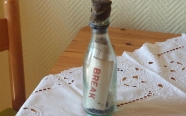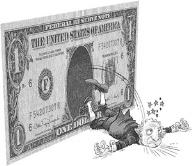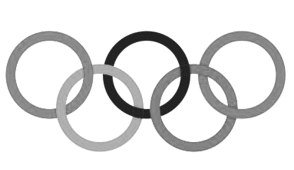��Ŀ����
����Ŀ�����ĸĴ�����10С�⣻ÿС��l�֣�����10����
�ٶ�Ӣ�������ʦҪ��ͬ��֮�佻�������ģ���������ͬ��д���������ġ����й���10�����Դ���ÿ���������������ÿ��������漰һ�����ʵ����ӡ�ɾ�����ġ�
���ӣ���ȱ�ʴ���һ��©�ַ��ţ�����������������д���üӵĴʡ�
ɾ�����Ѷ���Ĵ���б�ߣ��ܣ�������
�ģ��ڴ��Ĵ��»�һ���ߣ����ڸô�����д���ĺ�Ĵʡ�
ע�⣺
1. ÿ���������ľ�����һ�ʣ�
2. ֻ������10�������ߣ��ӵ�11���𣩲��Ʒ֡�
Smart phones had become part of our daily life. No matter who we are, we can see people busy play with their smart phones. Smart phones benefit them. They help us escape the pressures of life and get informations. However, if we spend too much time on them, we won��t have time to contact face to face our friends and family. And our life, study and work will hurt. In my view, we should limit to our using smart phones except for a purpose of learning. Meanwhile it��s absolute necessary for us to take part in more outdoors activities.
���𰸡�
Smart phones  become part of our daily life. No matter
become part of our daily life. No matter  we are, we can see people busy
we are, we can see people busy  with their smart phones. Smart phones benefit
with their smart phones. Smart phones benefit  . They help us escape the pressures of life and get
. They help us escape the pressures of life and get  . However, if we spend too much time on them, we won��t have time to contact face to face our friends and family. And our life, study and work will
. However, if we spend too much time on them, we won��t have time to contact face to face our friends and family. And our life, study and work will ![]() hurt. In my view, we should limit
hurt. In my view, we should limit ![]() our using smart phones except for
our using smart phones except for ![]() purpose of learning. Meanwhile it��s
purpose of learning. Meanwhile it��s  necessary for us to take part in more
necessary for us to take part in more  activities.
activities.
��������
��һ��: had��have�������������ݿ�֪,�˴�ǿ����ȥ�����Ķ�����������ɵ�Ӱ��,��Ӧ���������ʱ��
�ڶ���:who��where����������������,���Ƕ��ܿ�������æ�������ǵ������ֻ������ݾ����֪,�˴�Ӧ�� where��no matter where�����ò�״��Ӿ䡣
������:play��playing��be busy doing sth. �ǹ̶�����,��ʾ"æ����ij��"��
���Ĵ�:them��us�������ֻ����������档���������е�"we"�������е�"help us"��֪�˴�Ӧ��us��
���崦:informations��information��information�Dz���������,û�и�����ʽ��
������:��hurtǰ��be���������ǵ����ѧϰ�������ܵ�����Ӱ�졣hurt"�ԡ����в���Ӱ��"�Ǽ��ﶯ ��,����ӵ�����our life, study and work֮���Ƕ�����ϵ,��Ӧ�ñ�����̬,����be��
���ߴ�:ɾ��to��limit�Ǽ��ﶯ��,���ֱ�Ӹ�����,��to���ࡣ
�ڰ˴�:a��the��for the purpose of�ǹ̶��÷�,��ʾ"Ϊ�ˡ���"��
�ھŴ�:absolute��absolutely��ͬʱ,�μӸ���Ļ����˶���������˵Ҳ����ȫ�б�Ҫ�ġ��������ݴ�Ӧ�ø��ʡ�
��ʮ��:outdoors��outdoor���˴����ε�������activities,Ӧ�����ݴ�,��outdoors�Ǹ���,��Ӧ��Ϊoutdoor��




